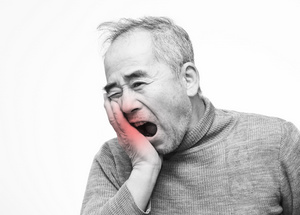
A History of Mint and How it Works
In ancient times, it was found that mint was more used to flavor food, drinks, or even be used for medicinal purposes, but not for freshening your breath. Up until the early 1800s other substances were used to attempt to freshen the breath, from cinnamon and rosemary to ginger and sage, but not mint quite yet. It wasn’t until a dental surgeon named Washington Sheffield concocted the first premixed toothpaste with mint oil, which was reproduced by Colgate & Co. By the 1920s, cures for halitosis (bad breath) became more common from companies such as Listerine and Pepsodent. The craze took off and evolved into the “cool mint” trend we now associate with dental care.
The trick lies in the chemical makeup of mint. Peppermint contains menthol, which causes the certain cold receptors in our mouth to open up. This is where the cooling sensation comes from, when in fact you aren’t consuming anything that’s cold. While it creates this cooling sensation, it’s not a magical fix for your bad breath either. The true causes of halitosis go deeper than just your breath.
Causes of Bad Breath
While mint breath strips and other breath fresheners can give us peace of mind for a while, to truly fix your bad breath you need to look at some causes that may be lurking in your mouth. For halitosis is often a sign that you may have cavities or gum disease. It’s also not uncommon to find halitosis in those who have cracked fillings or soiled dentures. In these cases, implant dentistry can help by replacing these damaged parts and replace them with quality dental implants.
Some other causes can actually go deeper than your oral health as well: diabetes, bronchitis, acid reflux, postnasal drip, and more can affect how your breath tastes as well. If you are suffering from these diseases among others, we recommend you visit your doctor for a diagnosis. We have found that our patients with clean teeth and tongues have found an underlying problem in their body signaled by their bad breath.
Contact Contemporary Dental Arts
At our office in San Jose, CA we take particular pride in ensuring the health of our patients in San Jose and beyond. While minty freshness is now highly regarded, we are devoted to uncovering the true cause of your halitosis and helping you repair and recover your fresh breath in a healthy way. For causes where the halitosis occurs as a result of a bad tooth or bad tooth replacement, we offer dental implants to help you create the smile your deserve. Contact us today to schedule a consultation with Dr. Keith Cooper, and discover what your bad breath may be hiding and guide you towards the best treatment for you.




